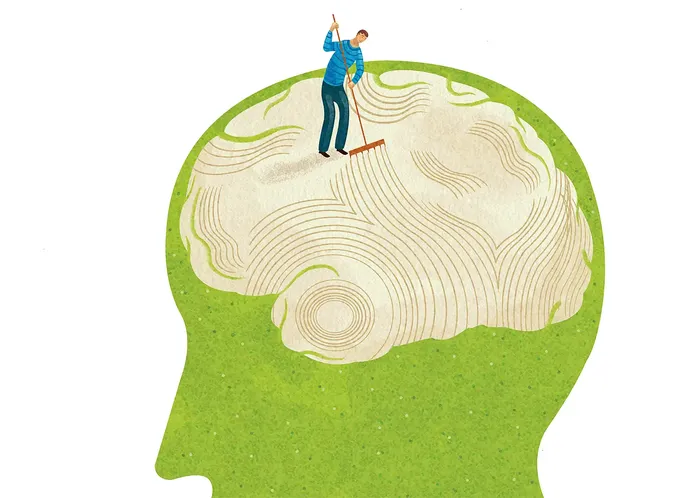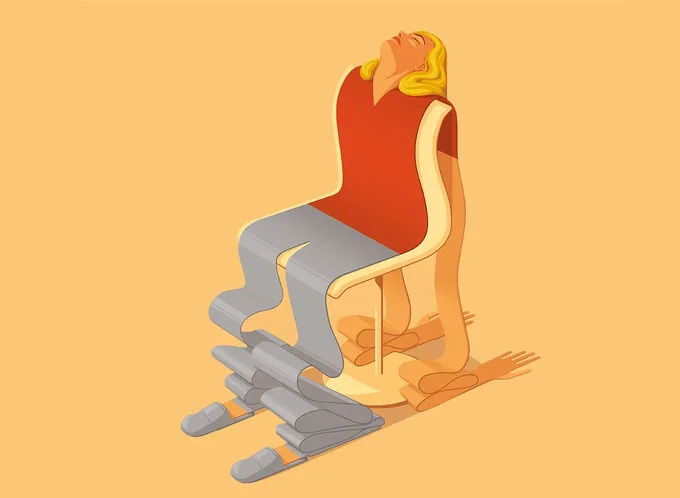We all have an inner voice, but if yours is more of a hindrance than a help, you may be dealing with imposter syndrome. Libby Schultz talked to leadership coach Jess Stuart, about what imposter syndrome is, where it comes from and how to stop it from holding you back.
We don’t offer our ideas in meetings, convinced others’ opinions matter more. We dread performance reviews, fearing the worst feedback. Or we let those dream jobs pass us by because we never ‘feel ready’.
If this sounds familiar, you might be dealing with imposter syndrome. It’s that inner voice that hinders us from pursuing things we’re quite capable of achieving.
According to the International Journal of Behavioral Sciences, nearly 70% of us have experienced feelings of imposter syndrome some time in our lives.
This could be anywhere on the continuum – ranging from occasional feelings of inadequacy through to a crippling and constant fear of being exposed as a fraud.
Although most commonly called imposter syndrome, it’s also variously known as imposter phenomenon and imposter experience.
But as motivational speaker and author Jess Stuart explains, words and definitions do matter.
“The word ‘syndrome’ has a medical connotation as if it’s a condition you get diagnosed with and need a prescription for. And of course, it’s not. It’s a state of mind and a passing experience.”
Put simply, it’s when a person feels they’re lacking in intelligence, skills or competence – despite evidence to the contrary.
A useful way to explain it, says Jess, is that we are looking through a distorted lens. We’re not being objective about our own abilities.
“The reality is what other people see. But when we look at the same reality, it’s clouded by this lens of self-doubt. And what we’re seeing is: ‘I’m not good enough. I need to be better. I’m failing and I’m going to be found out.’
The other end of the scale is someone who’s supremely confident in their own abilities – but that’s not based in reality either.
“People who tend towards narcissism also have a skewed view of their own competence. It’s just in the other direction. In both instances, we need to take off the lenses so that we can see the reality.”
Where does it come from?
It’s a mix of things, says Jess.
Like many psychological issues, it can stem from our childhood. If we had an art teacher who told us we couldn’t draw, for example, we might grow up believing we’re not creative and feel like an imposter when we try.
Although it can affect anyone, Jess says it’s not a surprise that minorities or underrepresented groups are disproportionately impacted.
“A lot of this is our societal baggage. If you’re succeeding in the very space you were told you’d never belong in, it’s obvious how that can play out.”
It might also be more primordial. Stepping outside our comfort zone presents danger and risk, and that’s when imposter experience can arise.
“Some people might be very confident at work but feel like a fraud in other areas of their life such as sport, parenting or dating. We usually find the inner critic becomes louder when we’re less confident in what we’re doing.”
One thing Jess always tells people in her sessions is that imposter experience is the domain of high achievers.
“If you’re experiencing imposter syndrome, it’s probably because you’re good at what you do which makes no sense psychologically, but it’s what the research has shown. I always say to people the person in the room with the highest expectations of you is generally you.”
Strategies to combat imposter experience
Although we may never eliminate the feelings of imposter experience altogether, there are ways to manage them.
“I liken it to the volume on a stereo,” Jess says. “The goal is to be able to turn the volume down on our inner critic and to accept that those feelings are just part of being a human who’s growing and learning.”
If you’re struggling with self-doubt, try these quick-win strategies:
- Recognise it for what it is. Remember, you may be looking at yourself through a hyper-critical lens. Your perception is not reality. Just being able to see the experience as something that’s happening in our minds – and not in reality – is hugely powerful.
- Reflect on your strengths. Believe in your own achievements and abilities. In particular, don’t underestimate your strengths and talents just because you find them easy. You probably find them easy because of your talent.
“It can be as simple as spending 60 seconds at the end of each day or week reflecting on what’s gone well and why,” says Jess. “Or you can start keeping a ‘success folder’. That gives you a portfolio of evidence to bolster you on those off days when your inner critic is on high volume.” - Celebrate your successes. Instead of obsessing over things that have gone wrong (which is the perfectionist’s mindset), you can refire those neural pathways in a positive way.
- Know you’re not alone. Given that so many people experience it, imposter experience needn’t be a taboo subject in the workplace.
“I’ve seen senior leaders who’ve modelled this really well,” says Jess. “When they share their own experiences, it allows everyone to open up and talk about their vulnerabilities.”
Jess Stuart is an international speaker, coach and author of 7 personal development books specialising in mindset, performance and leadership. She offers free resources and an online course on imposter experience at her website jessstuart.co.nz
Know someone who might enjoy this?
Read this next
-
November 2022
How to eat well when you can’t be bothered
-
August 2023
Staying well in an unpredictable world
-
November 2023
The power of gratitude
Good living
See all-
March 2021
In review
-
March 2021
Manaakitanga – more than just hospitality
-
March 2021
Land, sea and myth: Revisiting Hawke's Bay
-
July 2021
Breaking bread at Everybody Eats








